We occasionally link to goods offered by vendors to help the reader find relevant products. Some of these may be affiliate based, meaning we earn small commissions (at no additional cost to you) if items are purchased. Here is more about what we do.
Roses are red, violets are blue, sugar is sweet, and so are these candied flowers!
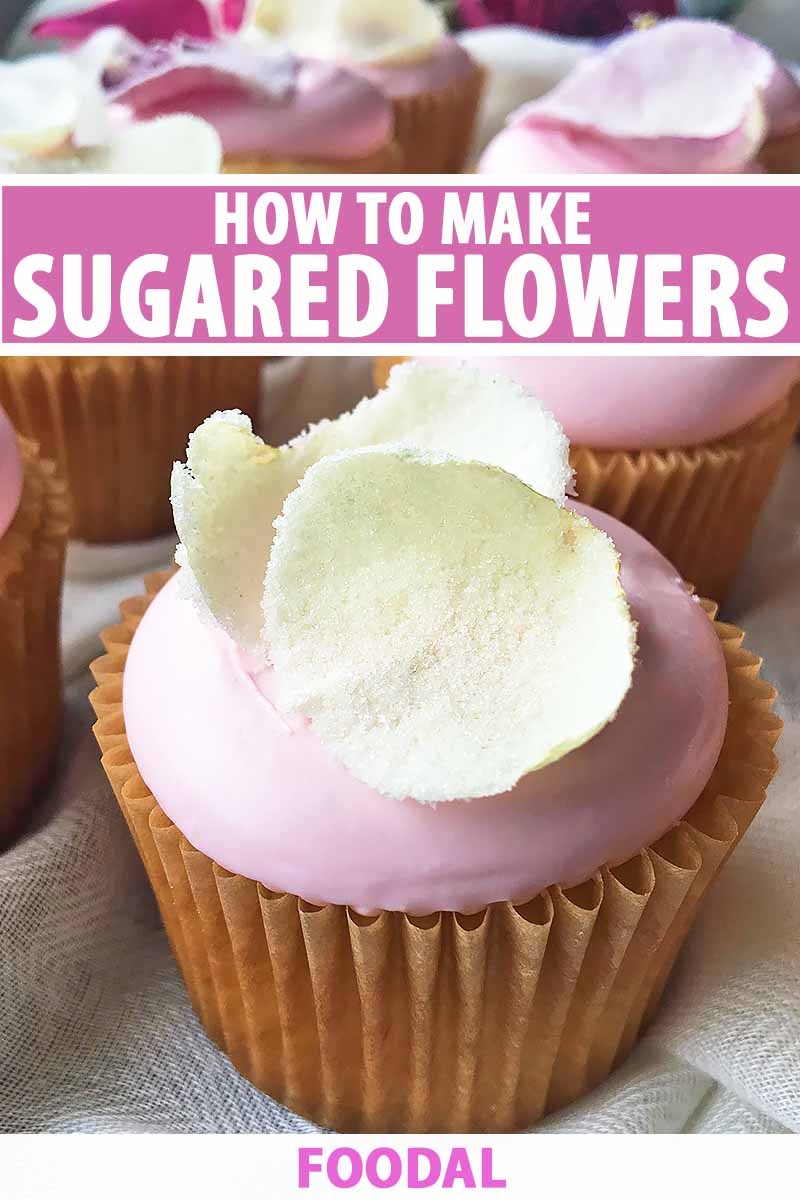
Ah, don’t be so disappointed – you know I think you’re sweet, too!
If you want to add a new technique to your basic cake decorating skills (sprinkles and royal icing flowers can only do so much), consider these sugary edible garnishes as your new spring/summer obsession.
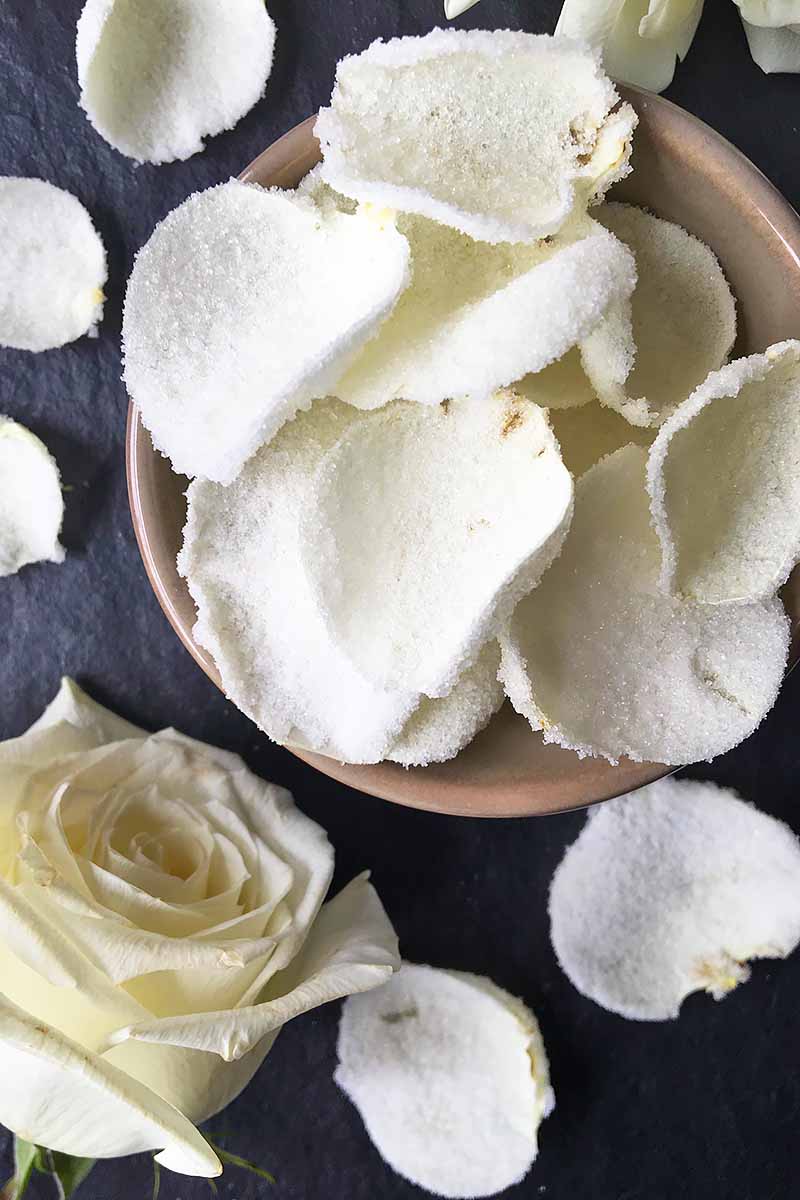
Use sugared flowers to beautifully adorn cakes, brownies, and cookies. Everyone will admire the dainty and delicate decorations, crisp and sparkling from a light coating of granulated sugar.
I’ve used them as a garnish on cupcakes – a couple rose petals on top of light pink buttercream transforms a cupcake from a simple party favor to an elegant, almost ethereal dessert.
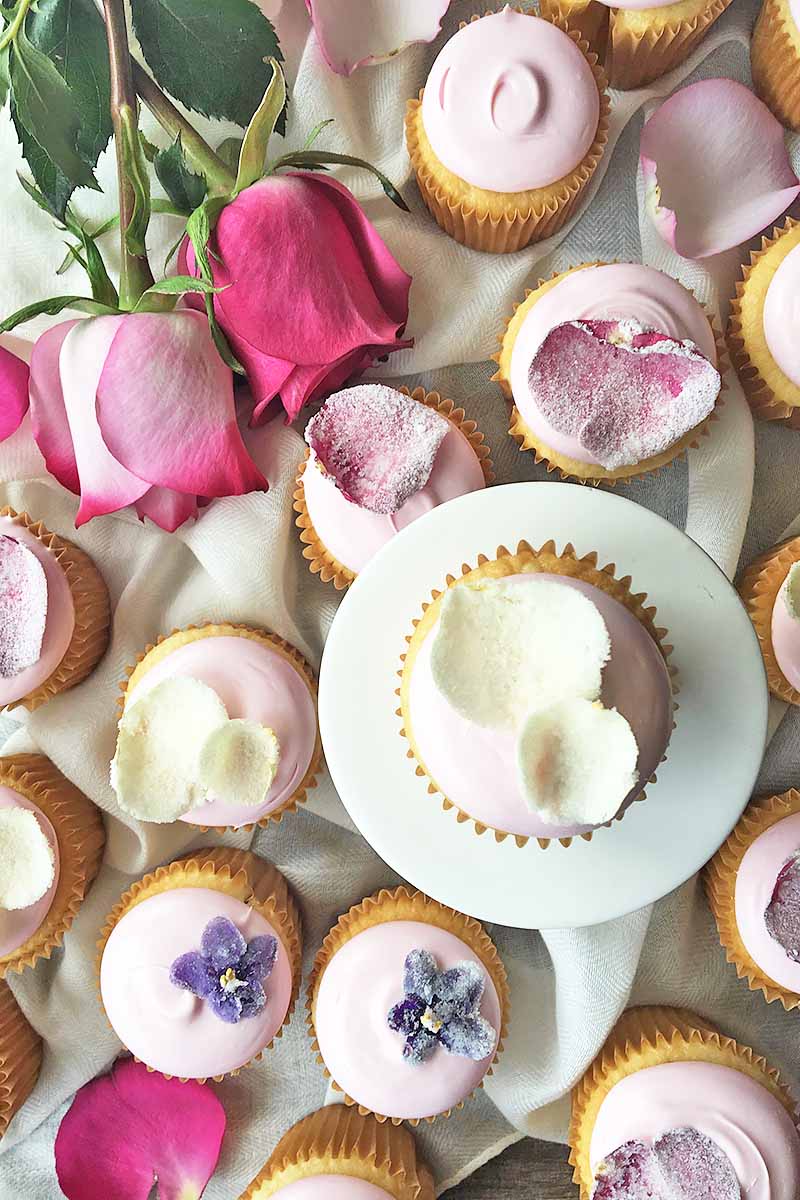
And for those of you with green thumbs who have flower gardens at home (have fun on our sister site, Gardener’s Path!), you might already have a beautiful source of blooms you can use.
Here’s the biggest precaution, though – make sure you use blossoms that are safe for consumption!
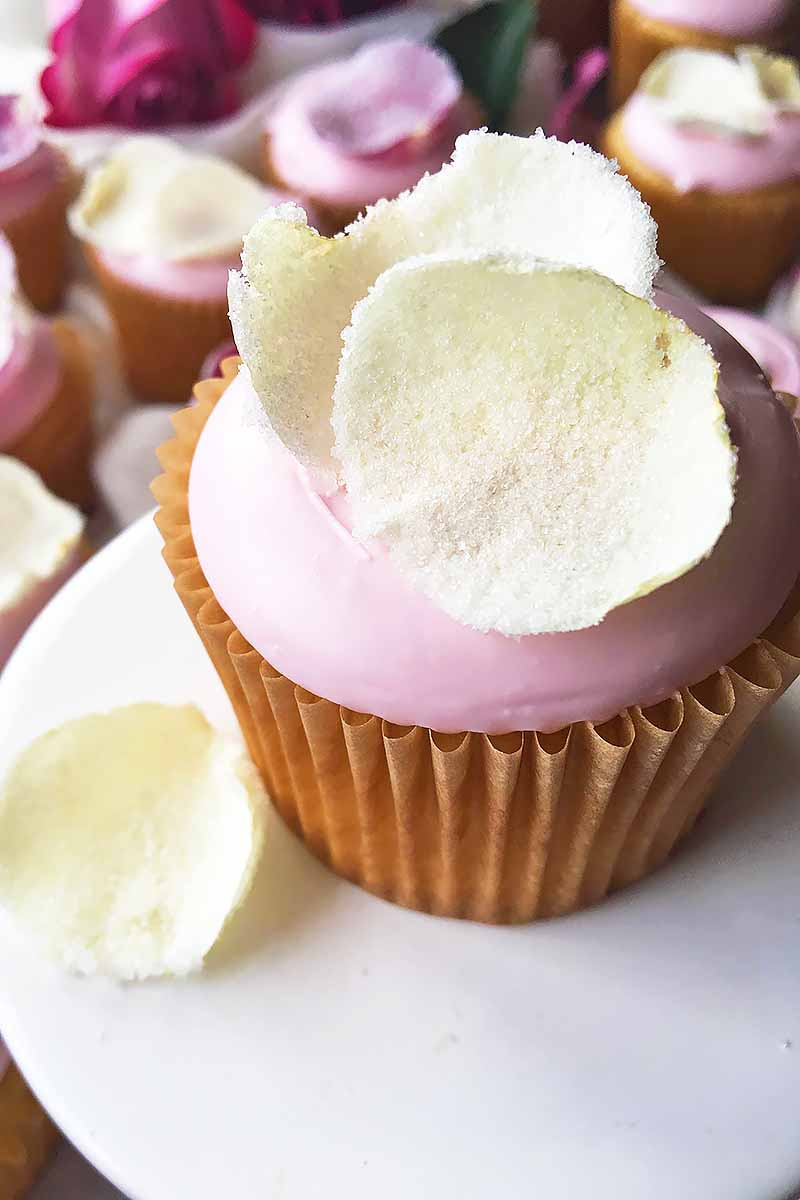
Whether you are using your own plants, or if you are purchasing from a store, ensure they are not dyed artificially, and are grown organically – no pesticides, no herbicides, no chemical treatments!
Some are inedible, or can be potentially poisonous when eaten in larger quantities. I didn’t find out until after I decorated my first batch of cupcakes with candied hydrangeas that they are not meant to be eaten!
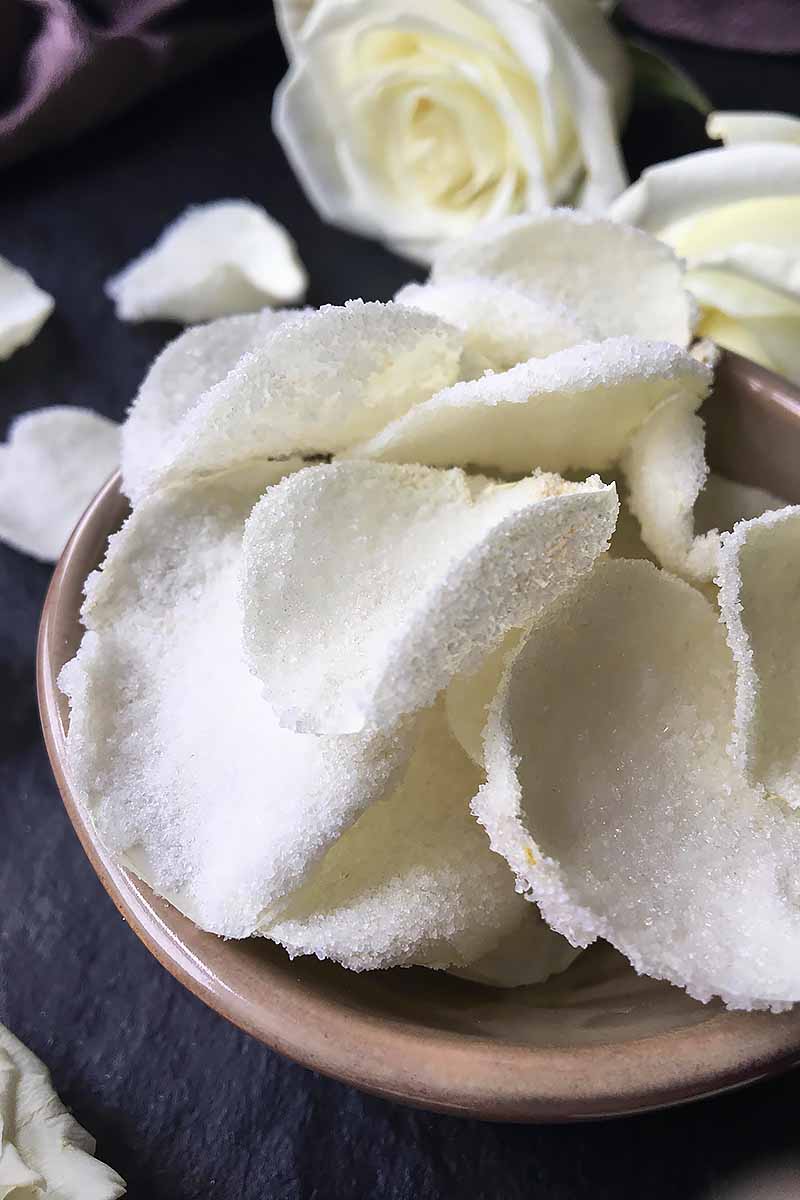
Sure, they may look pretty, but they shouldn’t top your next sweet treat.
Disclaimer: No one was harmed in the making of my first batch of cupcakes… except for my pride. Lesson learned.
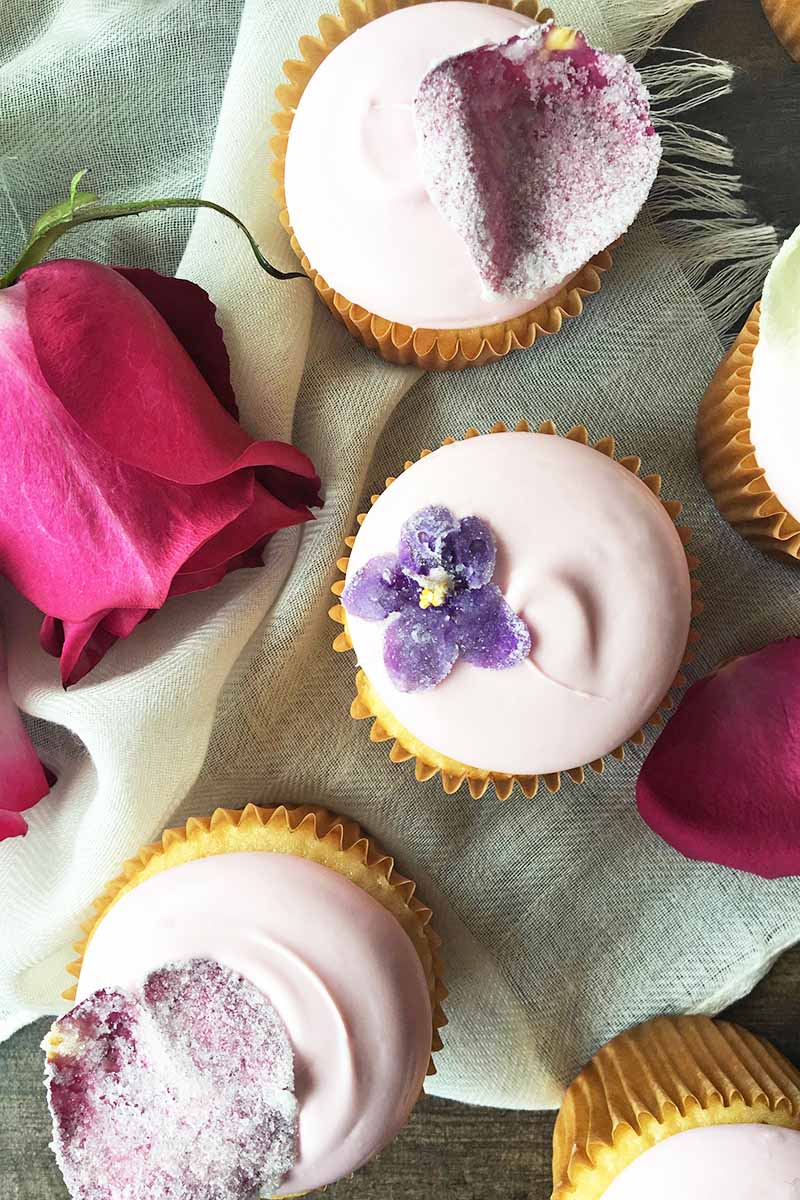
Roses and violets are just a couple among the many pretty edible blooms you can eat. Other smaller varieties that would be cute as decorations are dandelions, pansies, and violas.
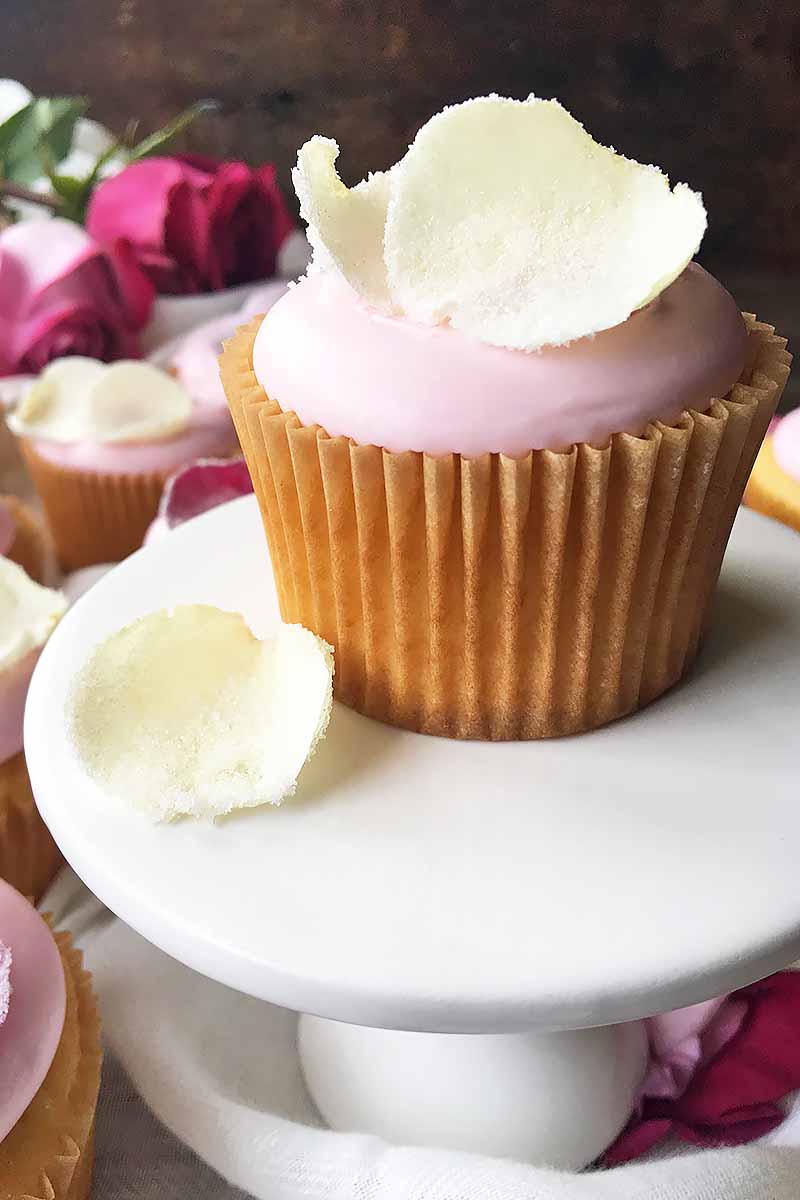
Consult this thorough list of edible flowers for more options.
Pick some pretty plants from the garden, and make these decorations now for your next batch of baked goodies!
Print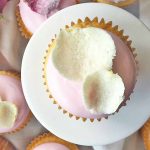
How to Make Sugared Flowers
- Total Time: 8 hours, 30 minutes
- Yield: 25 individual flowers/petals 1x
Description
Tired of decorating with sprinkles? Try something new for spring and summer with these dainty and elegant edible sugared flowers.
Ingredients
- 1 cup granulated sugar
- 25 edible rose petals or flowers, stems removed
- 1 large pasteurized egg white
Instructions
- In a small bowl, lightly whisk the egg white for just a few seconds without frothing the egg.
- Working with one flower or one petal at a time, brush a very fine layer of egg wash over the back and front of the flower or petal with a small paintbrush.
- Place the sugar in a shallow bowl. Using tweezers, gently transfer the coated flower on top of the sugar. With a spoon, sprinkle a fine layer of sugar over the top of the flower, and very gently press down to ensure the sugar will stick to both sides.
- Using the tweezers, gently pick up the flower and lightly tap on the side of the bowl to remove any excess sugar.
- Transfer to a baking sheet lined with parchment paper. Repeat with the remaining flowers and petals, and transfer to the baking sheet, leaving enough space in between each sugared flower.
- Let the sugared flowers stand uncovered at room temperature for at least 8 hours, or overnight, until dry and hard to the touch.
- Store the sugared flowers in single layers in airtight containers at room temperature for up to one month.
- Prep Time: 45 minutes
- Category: Candy
- Method: No-Bake
- Cuisine: Dessert
Keywords: cake decorating, sugared flowers, candied flowers, candy
Cooking by the Numbers…
Step 1 – Prep the Flowers
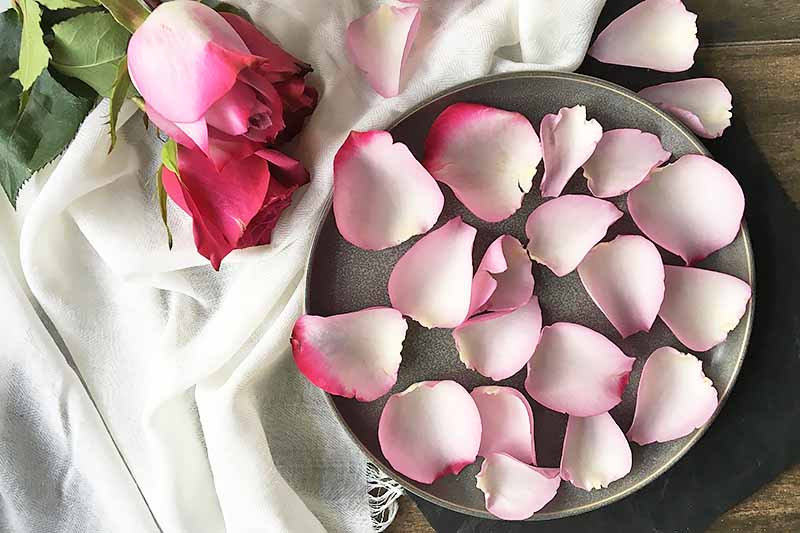
If using roses, remove the individual petals from the rose. One rose will typically yield about 20-25 petals.
If using other flowers, remove them from the stem, as close to the petals as possible without separating them.
Set aside on a large plate.
Step 2 – Lightly Whisk Egg White
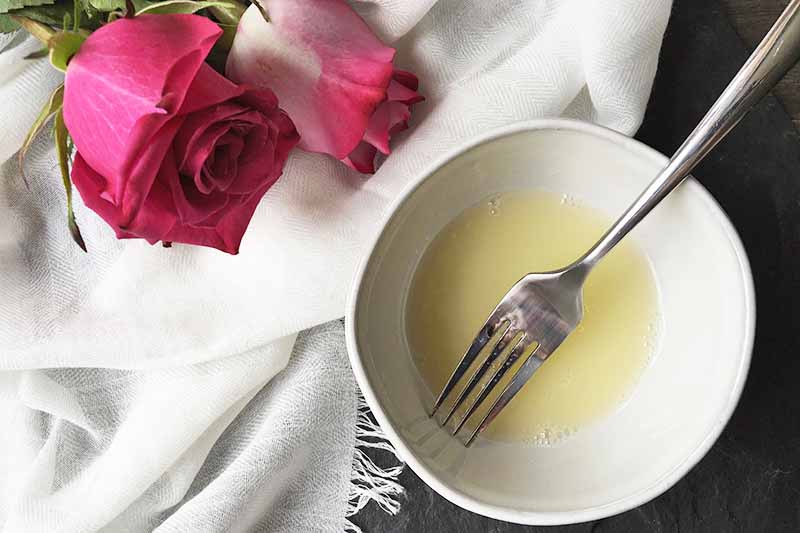
In a small bowl, lightly whisk the egg white for just a few seconds without frothing – you’re simply breaking down the structure without incorporating any air to make it easier for brushing.
Use pasteurized eggs to lower the risk of any foodborne illnesses potentially caused by raw eggs. Pasteurized egg whites sold in a carton will also work.
Step 3 – Brush the Petals
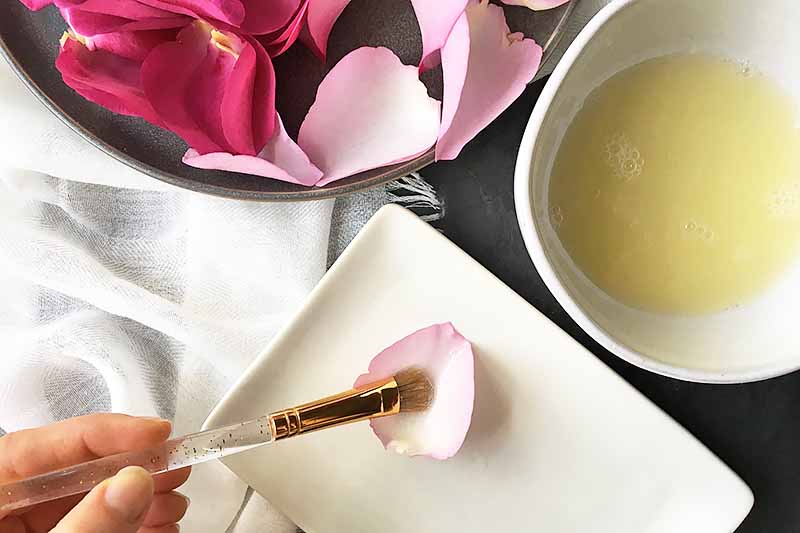
Work with one flower or one petal at a time for this step.
With a small paintbrush, brush a very fine layer of egg white over the back and front of the flower or petal. Work on a plate for this step to give yourself more control. You can use clean tweezers to help switch front to back.
There are two reasons why you need to ensure you are coating with a very fine layer:
- If there is an excess amount of liquid, the sugar will just dissolve into it without sticking, and it will not dry properly.
- With the smaller, more delicate petals of certain flowers, too much egg white will destroy the petals.
Step 4 – Cover in Sugar
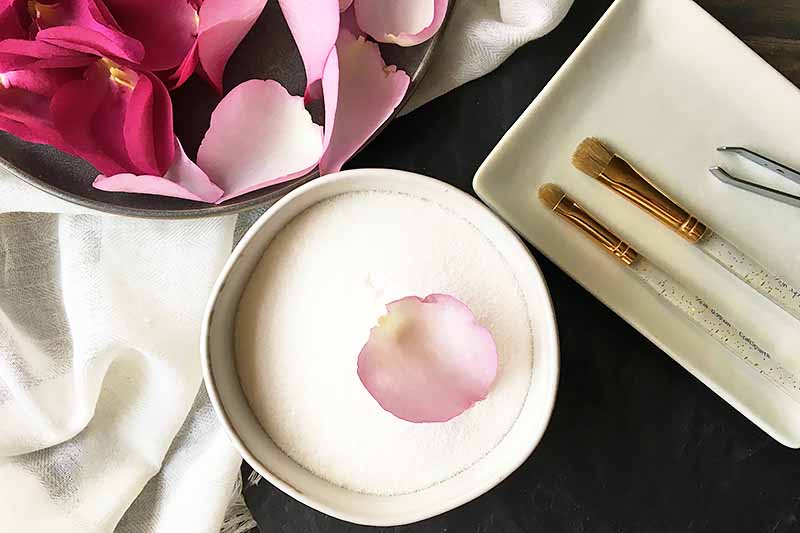
Place the sugar in a shallow bowl. Line a baking sheet with parchment paper and set aside.
Use tweezers to gently pinch the coated petal and place on top of the sugar. With a spoon, spread a fine layer of sugar on the top. Gently press down to make the sugar stick on both sides.
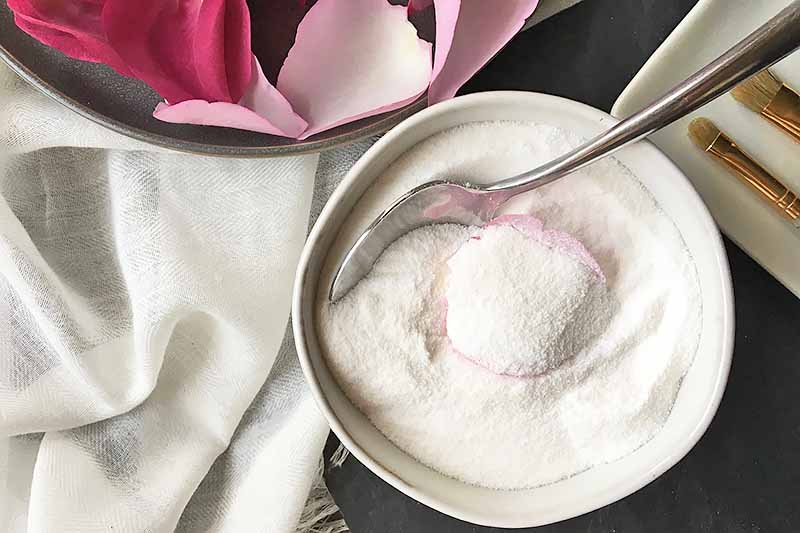
Using your tweezers, pick up the flower and gently tap it on the side of the bowl to remove any excess sugar. Place the coated flower on the prepared baking sheet.
Repeat with the other flowers or petals, leaving enough space between each one on the baking sheet for them to dry properly.
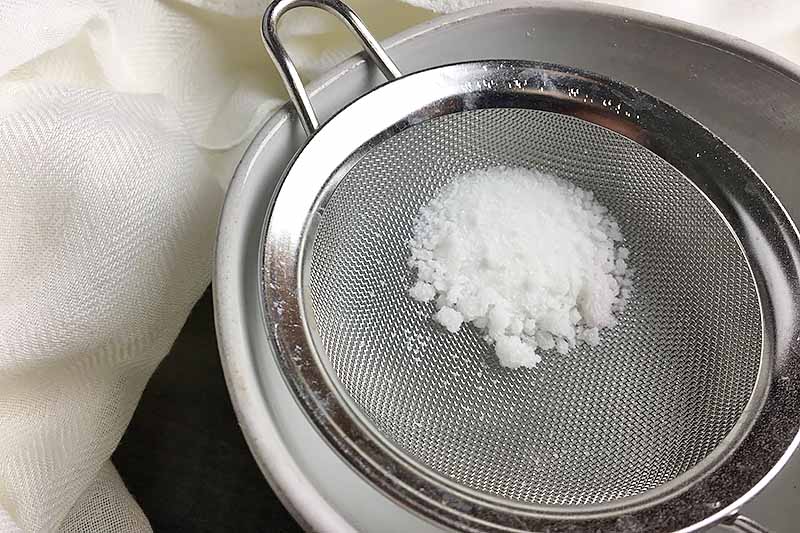
After sugaring a few petals, you will need to sift the granulated sugar to remove any large clumps. You don’t want those large bits sticking to your pretty decorations!
Step 5 – Dry and Store
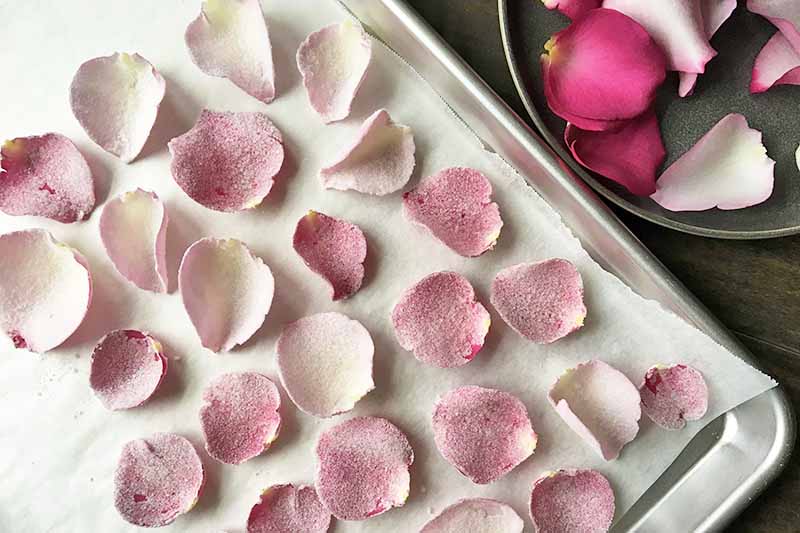
Let them stand uncovered at room temperature for at least 8 hours, or overnight, until dry and hard to the touch.
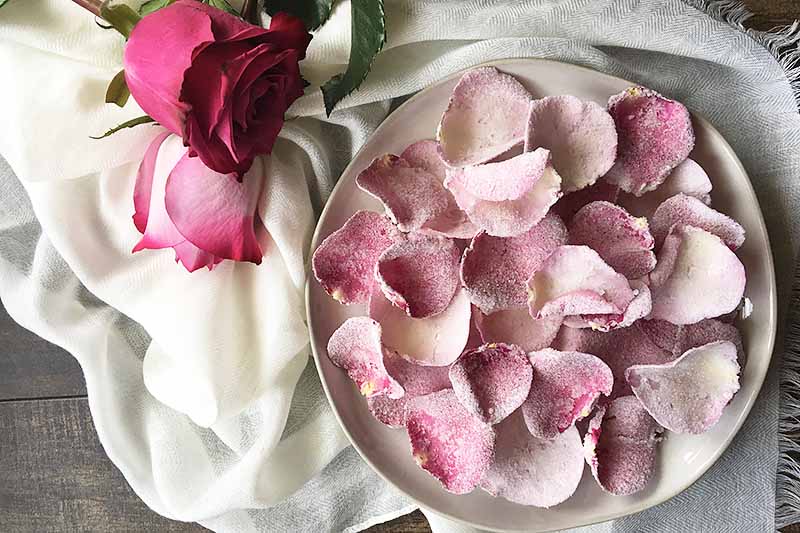
To quicken the drying process, you can use a cooling rack instead of a baking sheet pan to get more airflow on the bottom.
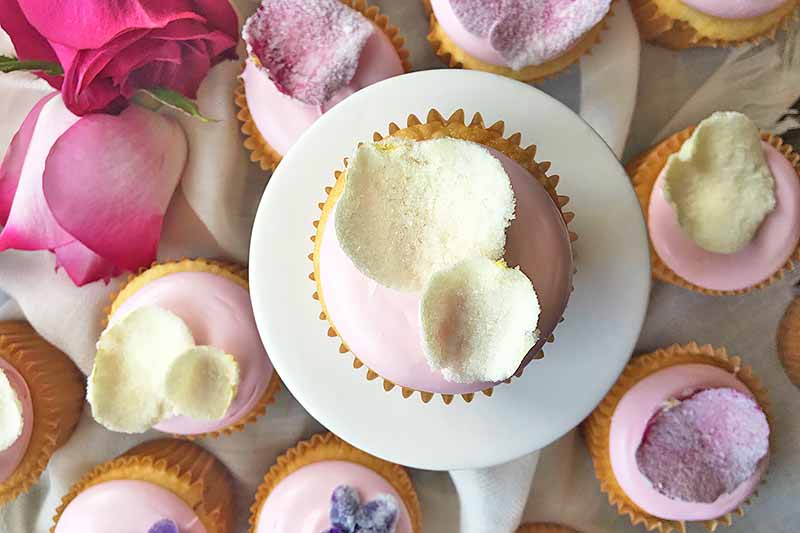
Once dried, use them for decorating, or store for later use. You can store the sugared flowers in single layers in airtight containers at room temperature for up to one month.
Beautiful Blooms – What Will You Choose?
With spring nearing full bloom, you’ll soon have a beautiful variety of edible flowers for sugaring!
Carefully go over the list of what you can and cannot use before you start the process. Don’t be like silly little me… do your research, readers!
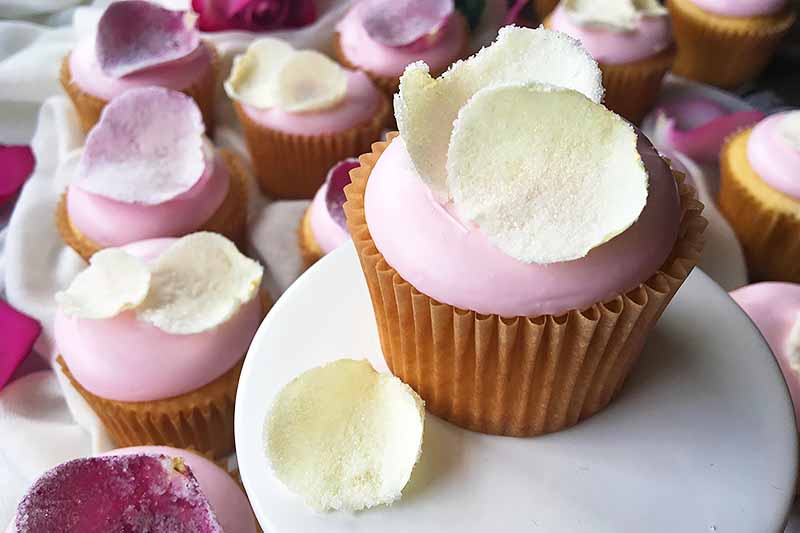
What will you choose? And how will you decorate with them? We love unique ways to decorate! From royal icing to custom stencils, we have so many fun options to choose. I’d love to get all of your fun ideas – be sure to leave me a comment below.
And if you can’t take your eyes off the beautifully tinted pink buttercream on the cupcakes, we can’t blame you. It’s gorgeous! We used the all-natural, plant-based pink food coloring from ColorKitchen.
For more tips and tricks for taking advantage of all of nature’s bounty in the warmer months, take a look at some of our helpful articles:
- Health Benefits of Fresh Herbs
- How to Preserve Your Herbs
- Homemade Natural Air Fresheners
- Dehydrating Your Garden’s Bounty
Photos by Nikki Cervone, © Ask the Experts, LLC. ALL RIGHTS RESERVED. See our TOS for more details.
Nutritional information derived from a database of known generic and branded foods and ingredients and was not compiled by a registered dietitian or submitted for lab testing. It should be viewed as an approximation.
About Nikki Cervone
Nikki Cervone is an ACS Certified Cheese Professional and cheesemonger living in Pittsburgh. Nikki holds an AAS in baking/pastry from Westmoreland County Community College, a BA in Communications from Duquesne University, and an MLA in Gastronomy from Boston University. When she's not nibbling on her favorite cheeses or testing a batch of cupcakes, Nikki enjoys a healthy dose of yoga, wine, hiking, singing in the shower, and chocolate. Lots of chocolate.

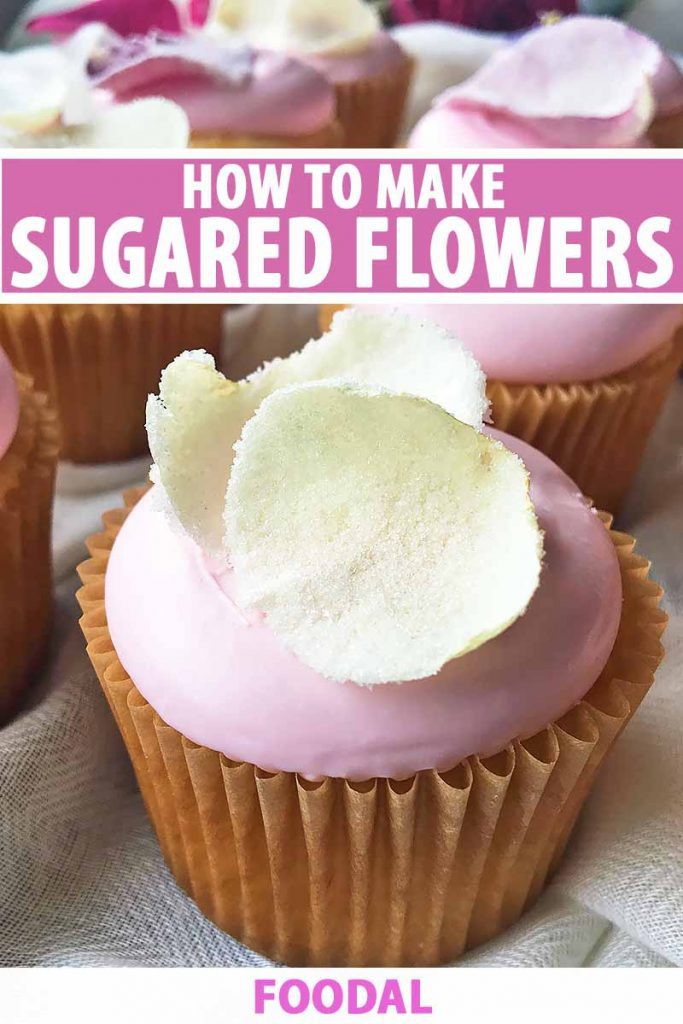
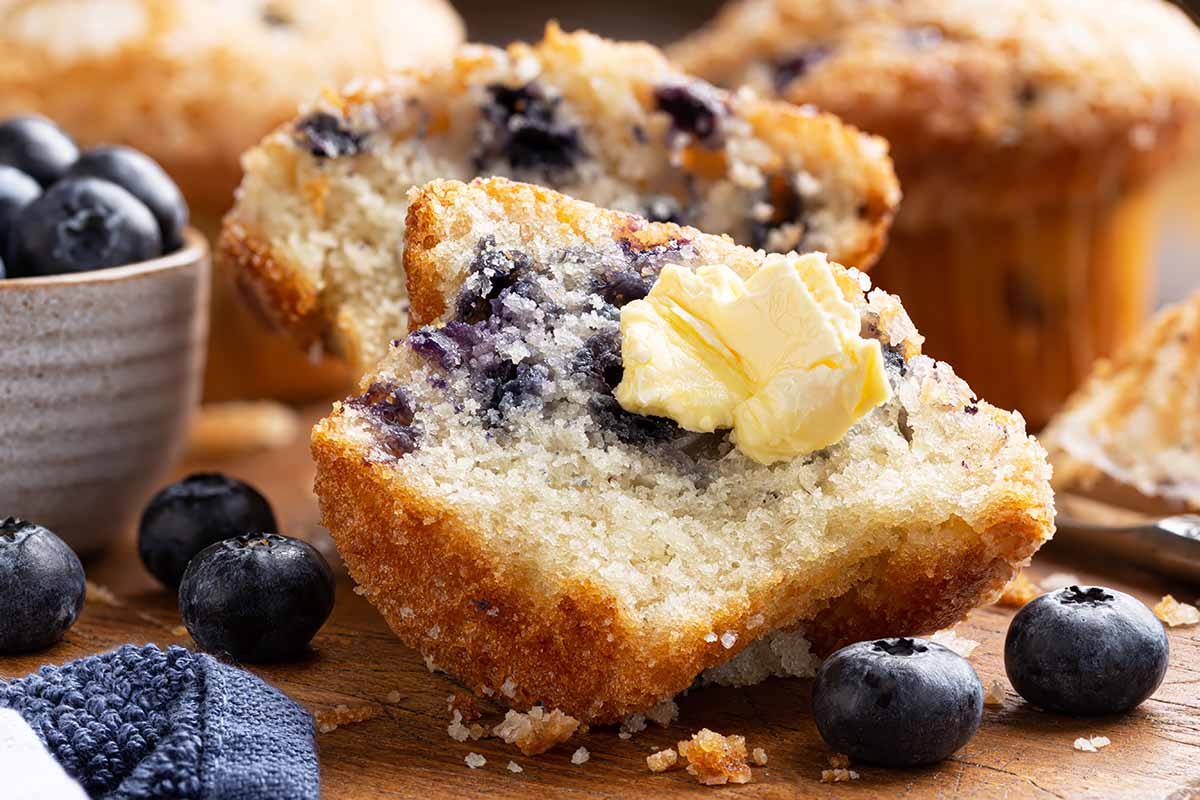
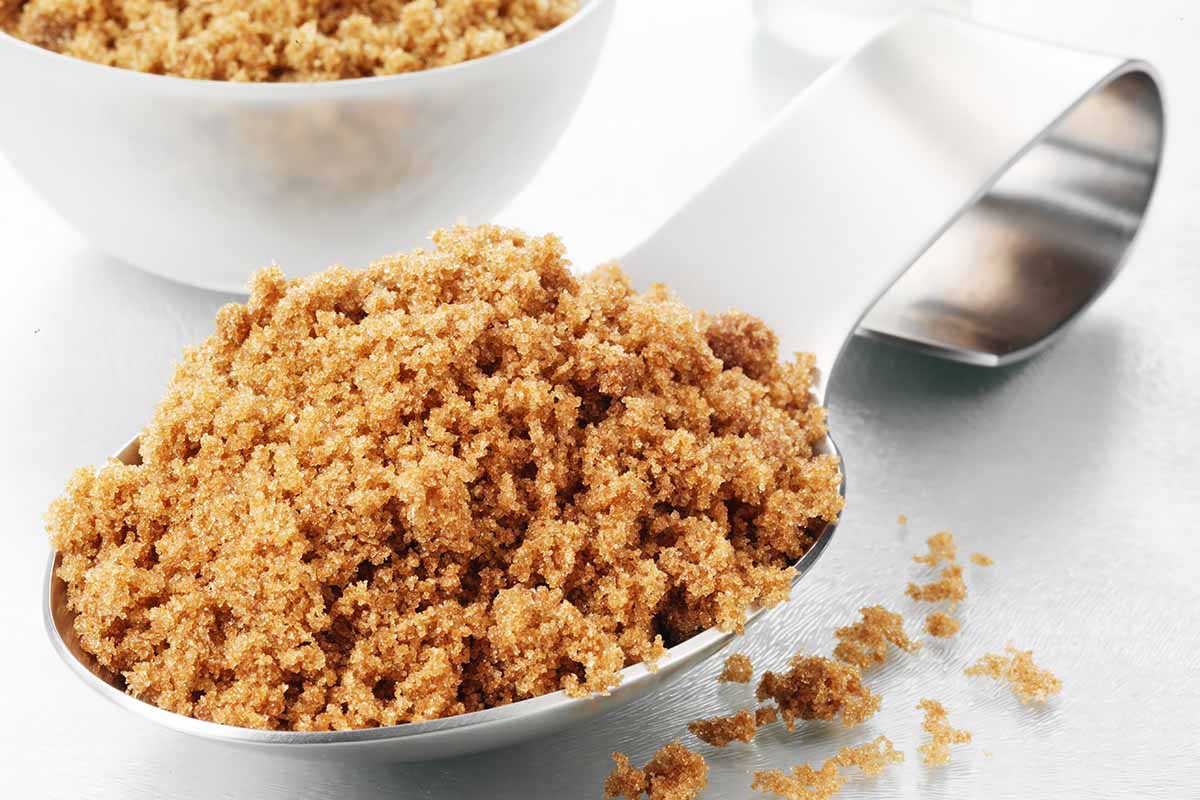
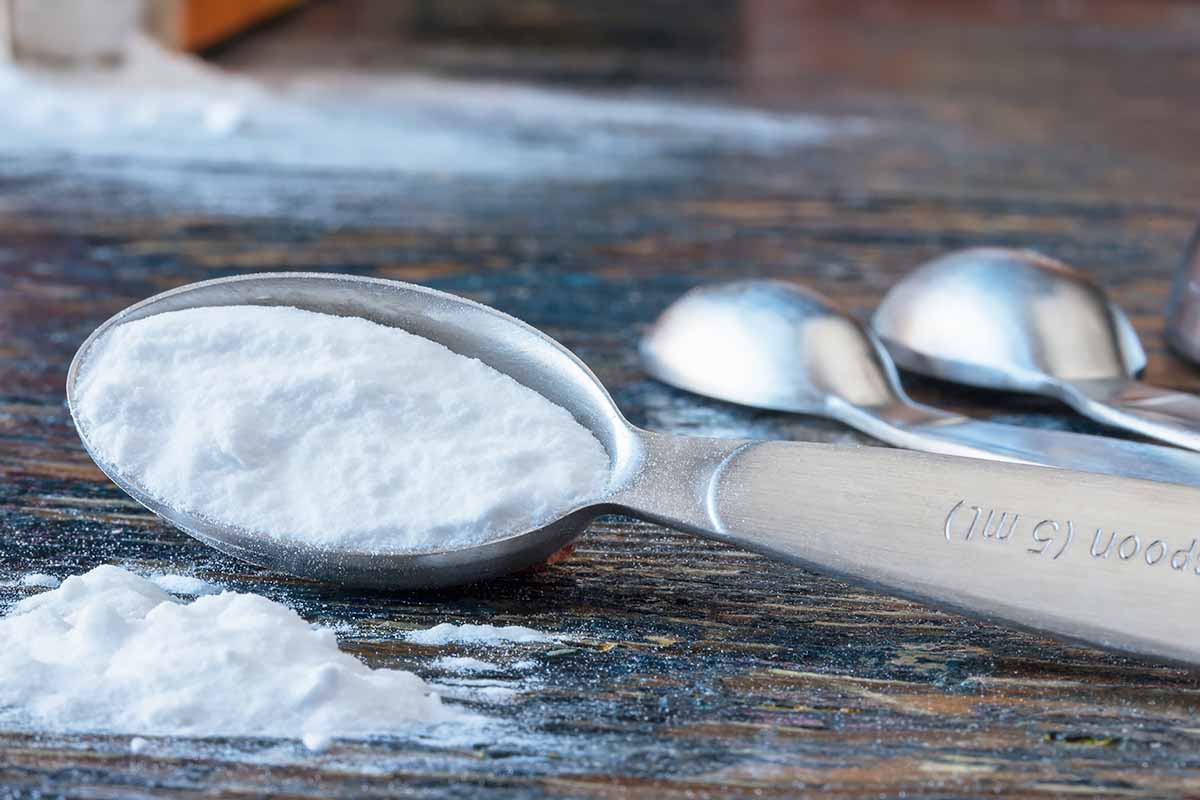
How to make gruyere quiche
Looks like you’ve landed on the wrong page! You can find our recipe for gruyere quiche with caramelized onions and red peppers here.